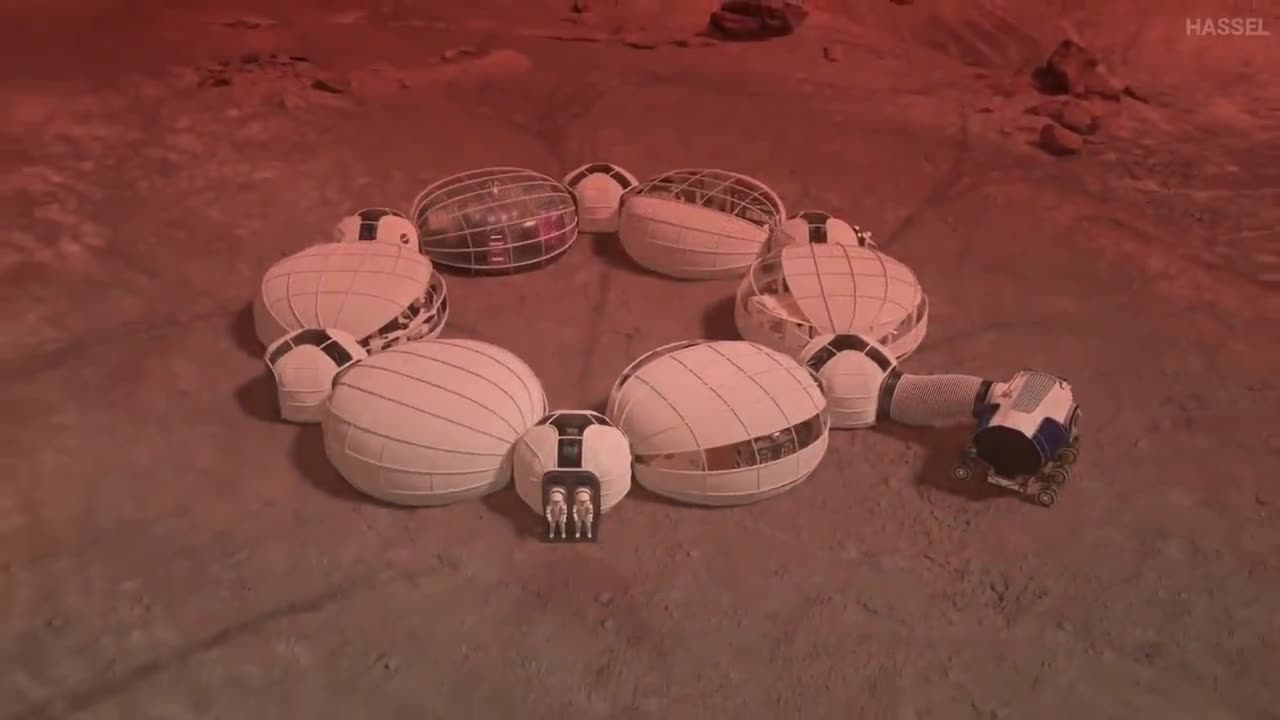Premium Only Content

This is how first human being lives on Mars
Living on Mars is a complex challenge that would require significant technological advancements and careful planning. While there hasn't been a human settlement on Mars as of my last knowledge update in September 2021, here's a description of some key considerations for how humans might eventually live on Mars:
Habitats: Martian habitats would need to be designed to protect inhabitants from the harsh environment, including extreme cold, radiation, and low atmospheric pressure. These habitats could be constructed on the surface, underground, or in domed structures.
Life Support Systems: Self-sustaining life support systems would be essential to provide oxygen, remove carbon dioxide, and recycle water and nutrients. This would reduce reliance on Earth resupply missions.
Food Production: To sustain a Martian colony, methods for growing food on Mars would be crucial. This might involve hydroponics, aeroponics, or other advanced farming techniques that can operate in Martian soil or hydroponic systems.
Energy Generation: Solar panels could be used to capture energy from the sun, but backup power sources or advanced energy storage systems would be needed to provide electricity during Martian dust storms, which can obscure sunlight for extended periods.
Transportation: Regular transportation between Earth and Mars would be required for supplies, personnel, and scientific missions. Developing efficient spacecraft and launch systems is essential.
Radiation Protection: Mars lacks a strong magnetic field and thick atmosphere, which means it receives more radiation from space than Earth. Radiation shielding for habitats and spacesuits is essential to protect human health.
Resource Utilization: Utilizing Martian resources, such as water ice for drinking and oxygen production, would reduce the need to transport supplies from Earth. This might involve drilling for subsurface water or extracting resources from the Martian atmosphere.
Healthcare: Medical facilities and equipment would be necessary to address health issues that could arise in the Martian environment, including the long-term effects of reduced gravity on the human body.
Psychological and Social Factors: Living on Mars would present psychological challenges due to isolation and confinement. Strategies for maintaining mental health and social well-being would be crucial.
Legal and Ethical Considerations: Establishing a legal framework for Martian settlements, including property rights and governance, would be important for long-term sustainability.
It's worth noting that various space agencies, including NASA, and private companies like SpaceX, have been actively researching and planning for potential human missions to Mars. However, the timeline for establishing a permanent human presence on Mars remains uncertain and would likely be a multi-decade endeavor.
-
 LIVE
LIVE
TheSaltyCracker
1 hour agoWe Got Him Fired ReeEEStream 9-17-25
13,037 watching -
 LIVE
LIVE
LFA TV
14 hours agoLFA TV ALL DAY STREAM - WEDNESDAY 9/17/25
830 watching -
 DVR
DVR
Stephen Gardner
1 hour ago🔥Trump ERUPTS After Obama’s Charlie Kirk Comments!
1.55K6 -
 LIVE
LIVE
Total Horse Channel
12 hours ago2025 WDAA Western Dressage World Championship Show | Day Two | Arena One
189 watching -
 1:14:40
1:14:40
Glenn Greenwald
2 hours agoThe Right Wages Its Own Cancel Culture War: Lee Fang, Thomas Chatterton Williams, and Leighton Woodhouse on the State of Civil Discourse and More | SYSTEM UPDATE #517
134K25 -
 1:03:04
1:03:04
BonginoReport
4 hours agoBomb Squad Investigates Package at TPUSA HQ - Nightly Scroll w/ Hayley Caronia (Ep.136)
173K66 -
 1:23:11
1:23:11
Kim Iversen
5 hours agoDennis Kucinich Exposes 9/11 Israel's Lies
91.5K160 -
 LIVE
LIVE
The Mike Schwartz Show
4 hours agoTHE MIKE SCHWARTZ SHOW with DR. MICHAEL J SCHWARTZ 09-17-2025
3,531 watching -
 LIVE
LIVE
Mally_Mouse
21 hours ago📣Telescreen Talks - LIVE!
174 watching -
 LIVE
LIVE
Quite Frankly
7 hours agoPsychotic Voices from Another World, Part 2 | Jerry Marzinsky & Judy Gregerson 9/17/25
488 watching